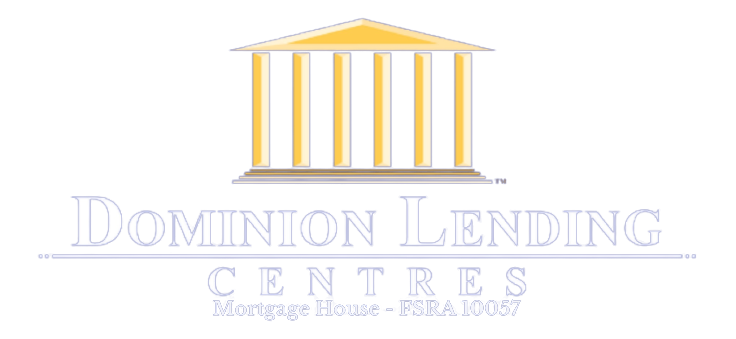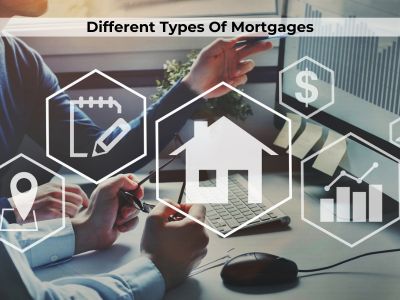A home is a severe investment Canadians will make in their lives. It is not a financial investment but also an emotional one. But with different types of mortgages available in Canada, choosing what will best suit you will take time. This blog will help you understand the different types of mortgages in Canada.
Different Types of Mortgages
• Fixed-rate Mortgages
This is the most common type of mortgage. The interest rate of this mortgage will stay the same until the end of your mortgage term. It also means it will be easier to determine and budget because you already know what your payments will be. Fixed-rate mortgages are available in different terms, usually one to ten years.
• Variable-rate Mortgages
Unlike fixed-rate, variable fluctuates as the interest rate rises in the market. It will take more work to determine when will the interest rate increase or decrease. Variable-rate usually has lower interest rate than fixed-rate, making it easier to risk on a variable-rate mortgage.
• Open Mortgages
Open mortgages let you pay extra without penalty. If you are a borrower that expects a large amount of money that you can use to pay more than what is required, an open mortgage is for you. Examples of these are inheritance, bonus, or tax return. Keep in mind that open mortgages have higher interest rates than fixed-rate mortgages.
• Closed Mortgages
Unlike open mortgages, you cannot pay extra payments or pay your mortgage in full without penalties. A closed mortgage has a set term and a fixed interest rate. It has a lower interest rate, making it a good option if you plan on paying less or paying it in full earlier.
• Convertible Mortgages
A convertible mortgage is a type of mortgage that allows you to switch from a variable-rate mortgage to a fixed-rate mortgage at any time during the mortgage term. This type of mortgage benefits those who want to take advantage of lower interest rates but also want the security of a fixed-rate mortgage.
• High-Ratio Mortgages
This type of mortgage requires a down payment of less than 20% of the home’s purchase. With that being said, you’ll have to pay mortgage insurance which protects lenders in case of a payment default. High-ratio is a good option for first-time home buyers who may have a small down payment.
• Conventional Mortgage
A conventional mortgage is a type of mortgage that requires a down payment of 20% or more of the home’s purchase price. With this type of mortgage, you do not need to pay for mortgage insurance. Conventional mortgages usually have lower interest rates than high-ratio ones, making them a good option for those who can afford a larger down payment.
Common Mistakes When Applying For a Mortgage
As mentioned, buying a home is a considerable investment, and avoiding any mistakes as much as possible should be your priority. The mortgage process can sometimes be overwhelming, but even a tiny mistake can have a huge difference and lead to costly consequences.
• Not Checking Your Credit Score
Your credit score is one of the most important factors when you apply for a mortgage. It will determine your creditworthiness, and the interest rate will be affected according to your credit score. You are entitled to obtain free credit reports from credit bureaus, so check your credit score and ensure that it is accurate.
• Not Getting Pre-Approved
Pre-approval will give you an estimate of how much you can afford for a home. With the estimated amount you can borrow, you can save time on house hunting. It will also give you an idea of what interest rate you can get according to your provided data. Not getting pre-approved can lead to disappointment, knowing you cannot afford the house you chose.
• Not Providing Accurate Information
When applying for a mortgage, providing accurate information to the lender is crucial. Providing false information or omitting relevant details can lead to your mortgage application being denied or delayed. It is also important to disclose any outstanding debts or financial obligations, as these can impact your eligibility for a mortgage.
• Taking a New debt During Mortgage Application Process
During the mortgage application process, taking on new debt, such as a car loan or credit card, can negatively impact your credit score and debt-to-income ratio. When evaluating your mortgage application, lenders look at your debt-to-income ratio, and taking on new debt can make you appear less creditworthy.
• Not Shopping for the Best Interest Rate
Settling too soon on an interest rate can affect your monthly payment. You can get the best deals if you are patient enough to shop for better mortgage interest rates. Comparing rates from different lenders can save you a lot of money in the long run.
• Making Large Purchases Before Closing
Before closing on your mortgage, avoiding significant purchases, such as a new car or furniture, is crucial. Large purchases can impact your debt-to-income ratio and credit score, leading to your mortgage application being denied or delayed.
• Not Understanding Your Mortgage Terms
Before signing on the dotted line, it is crucial to understand your mortgage’s terms and conditions thoroughly. Ensure you know the interest rate, mortgage term, and prepayment options. Understanding your mortgage terms can lead to unexpected costs and fees.
Conclusion:
Choosing the right type of mortgage is crucial, especially if it is your first time. It will affect your finances for the years to come. When choosing a mortgage type, it is essential to consider your financial goals, risk tolerance, and personal circumstances. As a first-time home buyer, understanding each aspect is crucial.
If you are looking for best-rate mortgages, you may book a call with Best Rate Mortgage Canada, as they are mostly full of mortgage agents who can get you closer to your best homeownership experiences.




